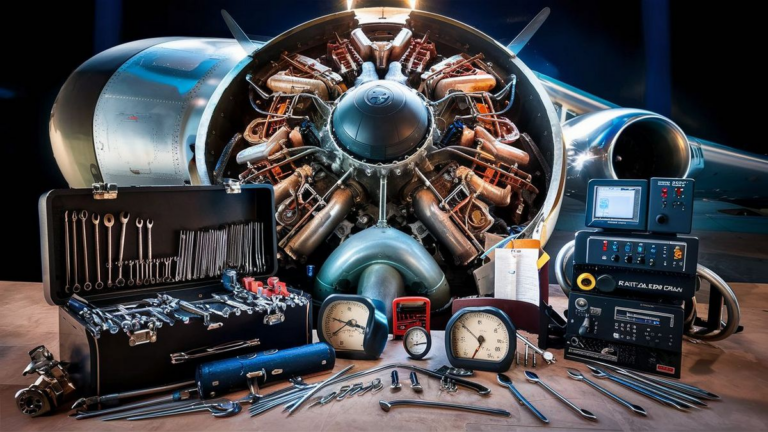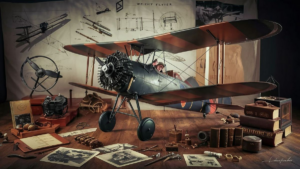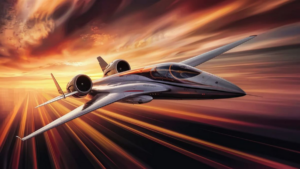When it comes to the intricate world of aviation, aircraft mechanics and service technicians play a vital role in ensuring the safety and functionality of aircraft. These skilled professionals are responsible for inspecting, repairing, and maintaining various components of aircraft, ranging from engines to avionics systems.
Overview of Aircraft Mechanics and Service Technicians
Aircraft mechanics and service technicians are highly trained individuals who possess in-depth knowledge of aircraft systems and components. They work in a variety of settings, including airports, maintenance hangars, and repair stations, to keep aircraft in optimal condition.
Roles and Responsibilities
One of the primary responsibilities of aircraft mechanics and service technicians is to conduct routine inspections of aircraft to identify any potential issues or defects. These inspections involve examining engines, landing gear, hydraulic systems, and other critical components to ensure they meet safety standards.
Additionally, aircraft mechanics and service technicians are tasked with performing repairs and replacements as necessary. This may involve troubleshooting electrical systems, repairing structural damage, or replacing worn-out parts to maintain the airworthiness of the aircraft.
Specializations
Within the field of aircraft maintenance, technicians may specialize in specific areas such as airframe maintenance, powerplant maintenance, avionics, or sheet metal repair. These specializations require additional training and expertise to effectively diagnose and repair complex aircraft systems.
Education and Training
Becoming an aircraft mechanic or service technician typically requires a combination of formal education and on-the-job training. Many professionals in this field obtain an associate degree in aviation maintenance technology or a related field from an accredited institution.
Following completion of their education, aspiring aircraft mechanics and service technicians often undergo apprenticeships or internships to gain hands-on experience under the supervision of experienced professionals. This practical training is essential for developing the skills and expertise needed to excel in the field.
Certifications and Licensure
In addition to formal education and training, aircraft mechanics and service technicians may pursue certifications from organizations such as the Federal Aviation Administration (FAA). These certifications demonstrate proficiency in specific areas of aircraft maintenance and are often required for employment in the industry.
Furthermore, aircraft mechanics and service technicians must obtain an FAA mechanic’s certificate with airframe and powerplant (A&P) ratings to legally perform maintenance and repairs on aircraft in the United States.
Job Outlook and Salary
The demand for aircraft mechanics and service technicians is expected to remain steady in the coming years, driven by the ongoing expansion of the aviation industry and the need to maintain existing aircraft fleets. According to the Bureau of Labor Statistics, the median annual wage for aircraft mechanics and service technicians was $64,090 in May 2021.
Overall, a career as an aircraft mechanic or service technician offers competitive salaries, opportunities for advancement, and the satisfaction of playing a crucial role in ensuring the safety and efficiency of air travel.
In conclusion, aircraft mechanics and service technicians are indispensable professionals in the aviation industry, responsible for keeping aircraft in optimal condition and ensuring the safety of passengers and crew. With their expertise and dedication, these skilled individuals play a vital role in maintaining the integrity and reliability of aircraft worldwide.
Challenges Faced in the Field
Despite the rewarding nature of the job, aircraft mechanics and service technicians encounter various challenges in their day-to-day work. These challenges can range from working in demanding environments with strict deadlines to staying updated with rapidly advancing technology in aviation.
Environmental Considerations
Working in airport hangars or on the tarmac exposes aircraft mechanics to various environmental factors such as extreme temperatures, noise, and exposure to chemicals. Proper safety measures and protective equipment are essential to mitigate these risks.
Technological Advancements
The aviation industry is continually evolving with advancements in technology, such as the integration of digital systems and composite materials in aircraft construction. Aircraft mechanics need to stay abreast of these changes through continuous training and professional development to effectively maintain modern aircraft.
Frequently Asked Questions
| Question | Answer |
|---|---|
| What is the typical work environment for aircraft mechanics? | Aircraft mechanics work in various settings, including airports, maintenance hangars, and repair stations. |
| What are the primary responsibilities of aircraft mechanics? | Primary responsibilities include conducting routine inspections, performing repairs, and ensuring aircraft meet safety standards. |
| What certifications are required for aircraft mechanics? | Aircraft mechanics typically need FAA mechanic’s certificates with airframe and powerplant (A&P) ratings. |
| What is the job outlook for aircraft mechanics? | The demand for aircraft mechanics is expected to remain steady due to the growth of the aviation industry. |
See also:






